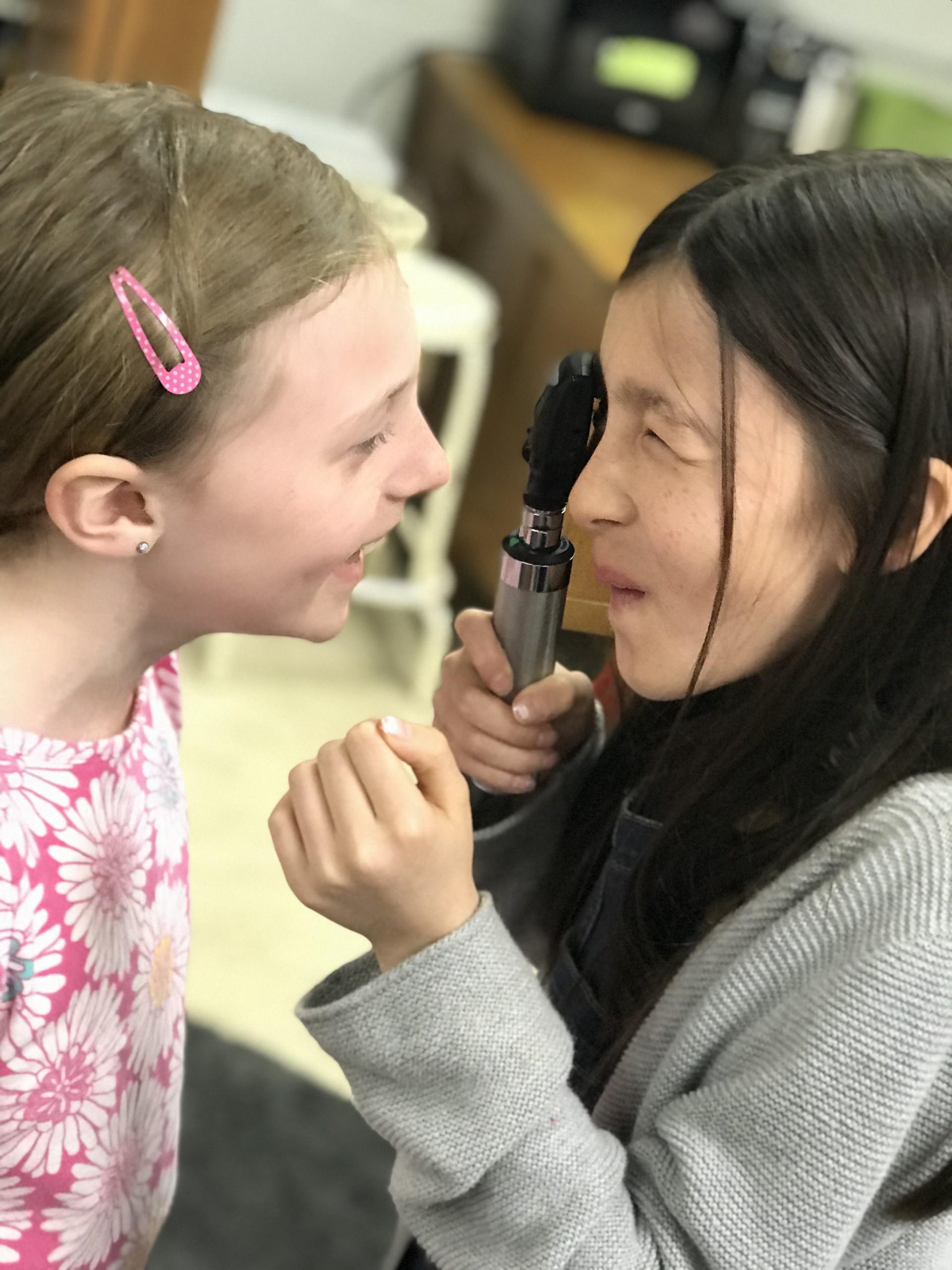UPPER ELEMENTARY PROGRAM
4th - 6th grades
School Day 8:15 - 3:15
After School Care Available
QUICK FACTS
- 1:10 Teacher Student Ratio
- Mixed Age Classroom
- 3 years in same classroom to foster growth and leadership
UPPER ELEMENTARY
 At the Upper Elementary, grades 4-6 level, hands-on, project-based learning is a critical part of the classroom as fundamental skills continue to solidify and children become increasingly independent and motivated learners. Students in this stage move from concrete representation to abstract thinking, starting to bring order to various disconnected facts and increasingly able to think hypothetically. During these years, children shift from learning to read to reading to learn. We support them in developing research, independent study and time management skills. They are excited to follow their interests independently and are encouraged to do so.
At the Upper Elementary, grades 4-6 level, hands-on, project-based learning is a critical part of the classroom as fundamental skills continue to solidify and children become increasingly independent and motivated learners. Students in this stage move from concrete representation to abstract thinking, starting to bring order to various disconnected facts and increasingly able to think hypothetically. During these years, children shift from learning to read to reading to learn. We support them in developing research, independent study and time management skills. They are excited to follow their interests independently and are encouraged to do so.
In upper elementary, we continue to educate the whole child. While we maintain high academic practices and expectations, we know that other important developmental growth unfurls during these later elementary years. The child’s social and moral character becomes more concrete and sophisticated, and they start to gain a higher understanding of their place in their community and the world. We give them numerous opportunities to explore how they directly affect themselves, others and their environment through leadership opportunities, helping younger students, leading community meetings, problem solving social conflicts and student-initiated projects that empower them to make a difference.
Our teachers support each individual as they strive to reach their own unique potential. At the upper elementary level, we continue to apply traditional didactic Montessori materials to support children as they develop a concrete understanding of complex concepts.
.jpeg)
CURRICULUM HIGHLIGHTS OF UPPER ELEMENTARY PROGRAM
Geometry
- Plane figures
- Angles
- Relationship of lines
- Perimeter and area
- Pythagorean Theorem
Language Arts
- Word study and etymology
- Reference skills
- Reading
- Comprehension
- Fluency
- Strategies
- Study of literature
- Study of grammar and syntax
- Writing process
Math
- Four Operations with whole numbers, fractions, decimals and integers
- Squaring and cubing numbers
- Finding square and cube roots
- Solving linear equations
- Powers of numbers (exponents)
- Non-decimal bases
- Distance, velocity, time
- Ratio
- Percent
- Graphing
- Measurement
- Probability
Social Studies
- Ancient civilizations
- Native American civilizations
- Land and water forms
- American history - these subjects are explored not with an emphasis on memorization and facts but rather by exploring major periods and gaining an overall picture of the defining events
- Civics
- Geography
Science - Students engage in hands on activities that allow for discovery in the following areas of science:
- History
- Botany
- Zoology
- Biology
- Properties of matter
- Data analysis
- Electricity and magnetism
- Technology and design
- Ecology
- Physics
- Space & Earth Science


